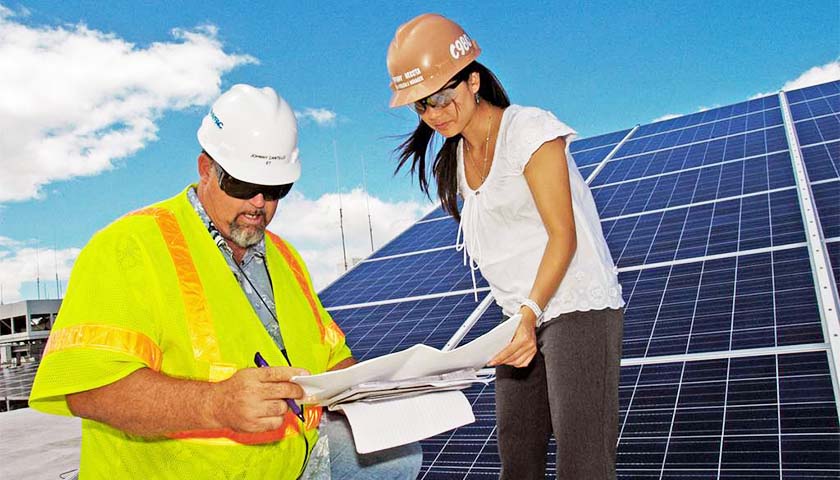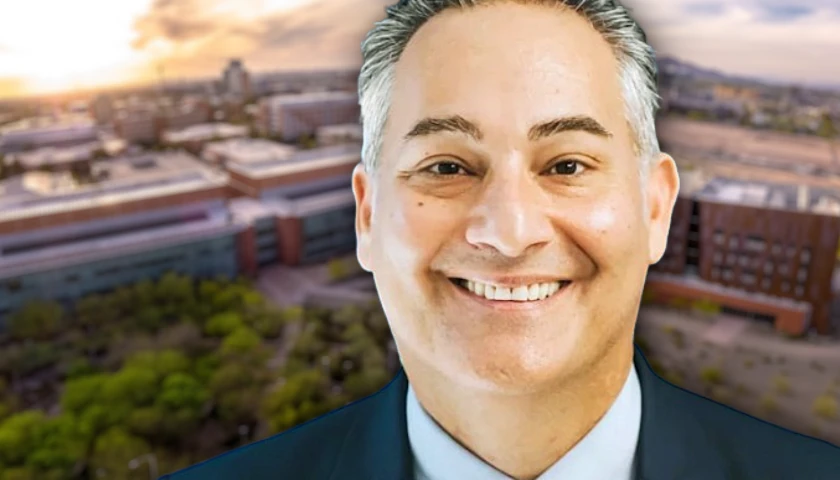Metro Nashville Councilman Freddie O’Connell tweeted Tuesday that Nashville Metro Water Services had officially opened its first net-zero energy building. O’Connell said the location was in Salemtown and shared a picture of multiple solar panels at the Water Service’s campus.
“The electric meter literally runs backward on a sunny day!” O’Connell tweeted. He added the price of solar panels for residential properties had decreased 80 percent in the past decade.
During a Facebook live Tuesday, the Metro Water Services Director Scott Potter, standing next to the 512 solar panels that were on the top of the Central Administration Building, said, “These solar panels generate more electricity than is required to operate the building’s electricity demand.”
Potter continued, “We are extremely excited about that… this solar roof is extremely exciting to me personally, and I think it demonstrates Metro’s commitment to renewable energy.”
Commercial buildings with solar panels are slightly more efficient than residential, according to A1A Solar, by about 2 percent. The solar panel installation company said that if residents are comfortable with the size, that they could also install solar panels that are intended for commercial use.
A1A Solar also said that one of the main differences in installation for commercial and residential is that commercial buildings will typically have a flat roof, which makes it easier to install the panels. But, “commercial systems can take up to a month to complete, while residential solar panels generally take one or two days to install.”
O’Connell listed two local companies that install solar panel systems: the Tennessee Valley Authority’s Green Connect and the Nashville Electric Company’s Music City Solar.
The TVA “Green Connect” is a referral program, while Nashville Electric Company’s “Music City Solar” offers a way for any customer to participate in a solar power system.
Through NES, residents of Nashville are able to ‘subscribe’ to a solar panel instead of installing the panels onto residents’ homes. The solar array, consisting of individual 117.5-watt solar panels, is located on a nearby community site. NES said the site has a total of 17,020 panels along I-65 on Old Due West Avenue near TriStar Skyline Medical Center in North Nashville and is rated to produce 2 megawatts.
NES explained that once subscribed, residents would then get a credit from the energy the panels produced applied towards their energy bill, which averages about $11.88 per panel each year. The company said each panel is expected to produce 14 kilowatt hours (kWh) per month.
According to the U.S. Energy Information Administration, the average American home in 2020 used 893kWh per month, meaning each panel could provide up to about 1.6 percent of total household electricity per month.
The subscription can be bought or gifted. There is a one-time $215 subscription price per panel, and residents are also able to make a tax-deductible donation as a ‘solar angel’ to help pay for low-income families that qualify for the Community Foundation. There is a 20-year term that is required with the subscription.
Currently, there are 2,935 solar panels being leased, and 219 panels donated through the solar angel program; and there are still 14,442 panels available for subscription.
According to Climate-Data.org, the highest amount of sunlight in Tennessee is usually in June, with a daily average of 10.55 hours of sunlight. The lowest amount is usually in January, with a daily average of 5.22 hours.
– – –
Morgan Nicole Veysey is a reporter for The Tennessee Star and The Star News Network. Follow her on Twitter. Email tips to [email protected]
Photo “John Cantillo and Tiffany Nekota Review Installation Plans for a 20,000-Square-Foot Rooftop Photovoltaic System” by U.S. Navy.








